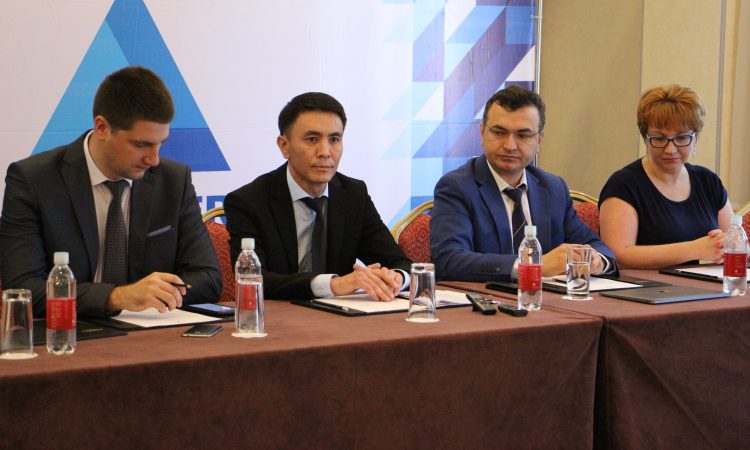As with many emerging economies, non-enforcement of court decisions in the Kyrgyz Republic remains a challenge.
Despite the progress achieved by Kyrgyzstan’s judicial system in improving its commercial law capacity, there are lengthy delays in the process and unenforced judgments, particularly when it comes to debtors who hide assets and evade court orders. This can pose obstacles to investor confidence and inhibit economic growth and prosperity.
Strengthening court decision enforcement has become a focus of reform activities across Eastern Europe and Central Asia, as many countries are facing similar challenges.
The effectiveness of bailiffs and other enforcement agents responsible for administering court decisions is being improved in Kyrgyzstan. This follows a 2016 analysis of the system that pointed to the need to build their skills as well as the need for legislative reform. In December 2017, the Kyrgyz Parliament adopted a law on the Status of Court Enforcement Agents and Enforcement Procedure.
“Kyrgyzstan is determined to improve the legislative base of the court enforcement, including the focus on a strategy for improvement of the court enforcement system, introduction of the electronic registries and building the capacity of the Court Department, which is entrusted with the control over the process of implementation of the court decisions,” said, Mr. Maksatbek Yesenaliyev, Deputy Minister of Justice of Kyrgyzstan.
To implement the new law and build a new generation of professional bailiffs, the Court Department is being supported by IDLO and the European Bank for Reconstruction and Development (EBRD) who have been working together in Kyrgyzstan since 2005 to enhance the commercial law capacity of the justice system.
Exchange of experiences
As part of its recent project to build the capacity of Kyrgyz bailiffs, undertaken in partnership with EBRD, IDLO organized a visit to Kiev, Ukraine of justice sector professionals, including bailiffs, former judge-trainers and representatives of the Court Department, Ministry of Justice of Kyrgyzstan, High Justice Training Centre of Kyrgyzstan and Administration of the Supreme Court of Kyrgyzstan.
While the aim of the visit was to conduct a Training of Trainers program, the choice to hold the activity in Ukraine rendered the added benefit of fostering dialogue across borders and learning about diverse systems in the region.
“EBRD and IDLO organized this visit for the bailiffs and legal professionals from Kyrgyzstan to create an opportunity for a regional exchange and dissemination of best practices existing in the region. We are happy to bring together both countries, as they have so much in common in their legal and institutional traditions, and hope the exchange will be relevant and useful,” remarked EBRD’s Director of Legal Transitions Program, Mr. Michel Nussbaumer.
Ukraine recently instituted a mixed public-private system of bailiffs. In combination with the state enforcement service, the private bailiff service seen an increase in the efficiency and expediency of enforcing court decisions in the country.
“In the process of judicial reform, we brought changes to the constitution […] as well as introduced new legislation governing the enforcement of judicial decisions,” said Ms. Svitlana Gluschenko, Deputy Minister of Justice of Ukraine.
“We introduced a mixed system of court enforcement bringing the private bailiff system to aid the process that was for years driven by the state enforcement agents. The reforms led to moving Ukraine 17 points in the Doing Business rating of the World Bank.”
Throughout the visit, the bailiffs and other enforcement agents from Kyrgyzstan met Ukrainian professionals involved in the process of court enforcement on the executive and legislative side. Experiences from Moldova – where the bailiff system has been completely privatized – were also shared.
This multi-country perspective allowed Kyrgyz participants to examine various models of bailiff systems implemented by countries experiencing similar challenges. The visit presented a rounded view of success stories and shortcomings, and mechanisms that can be advanced – notably the introduction of an electronic system to track assets, which will be relevant to the Kyrgyz judiciary’s work in the years to come.
“For me the most valuable moment was to see and learn about the Automated Unified Database to register debtors,” commented one Kyrgyz participant. “For the first time in 8-10 years of work, I visited a department where virtually all the work is done electronically, namely electronic access to information about the debtor’s property.”
Echoing the level of value experienced from the visit, another Kyrgyz participant added, “The program was very intense, with almost 12 experts who covered different topics.” He continued: “These experiences need to be adopted in our country.”
As outlined in IDLO’s Strategic Plan 2017 – 2020, the work in Kyrgyzstan reflects one of IDLO’s primary goals to ensure that “laws and policies are fair and institutions are effective, accessible and accountable.” Specifically, IDLO’s core strategic aims are to strengthen the capacity of institutions to uphold justice, and also to support legal and judicial actors to promote economic opportunity and sustainability. As IDLO implements recommendations emerging from the analysis, lessons from the regional exchange can continue to infuse new perspective on solutions and potential opportunities for reform in Kyrgyzstan.
IDLO




